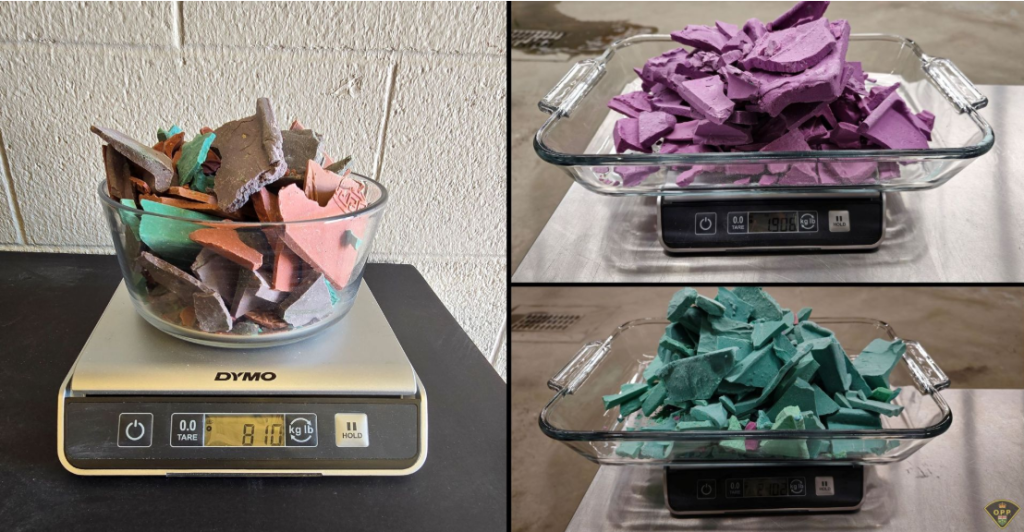Eastern Ontario Health Unit and police warning residents of increase in drug-related overdoses in Cornwall area
Posted Sep 30, 2022 12:00:00 AM.
The Cornwall Police Service (CPS) and the Eastern Ontario Health Unit (EOHU) are warning residents about an increase in drug-related overdoses in and around the city of Cornwall.
Many of the overdoses seem linked to opioids like 'purple heroin' or 'purple,' a substance that contains a dangerous mix of fentanyl, benzodiazepines and other substances. We are also receiving reports of various other substances which come in a variety of colours beyond purple.
“Stronger opioids are more likely to cause overdose, and we are seeing an alarming rise in overdose events in our region,” said Dr. Paul Roumeliotis, medical officer of health at the EOHU. “Safety precautions such as naloxone kits can be lifesaving in these situations, but it’s also important to call 9-1-1 even before administering it, as naloxone is not effective in overdoses from benzodiazepines. If you or someone you know is using street drugs, I implore you to take advantage of the free naloxone kits and training in our area. They may very well save a life.”
Overdose prevention and safety tips
The best way to prevent an overdose is to avoid street drugs or counterfeit medications. However, if individuals use street drugs, taking the following precautions will help to lower the risk:
- Never use alone
- If you are going to use alone, call the National Overdose Response Service at 1-888-688-6677. A non-judgmental peer will stay on the line with you for approximately 30 minutes to provide support if needed.
- Use only where help is available
- Don’t mix drugs
- Take a test dose and wait before taking more of the drug
- Get a free naloxone kit that can help to reverse the effects of an opioid overdose
- Use only new drug paraphernalia supplies and avoid sharing supplies to reduce your risk of getting or passing on an infectious disease.
Signs of an opioid overdose
Opioids such as fentanyl slow down the part of the brain that controls breathing, and in the event of an overdose, can cause someone to stop breathing altogether, resulting in their death. Individuals having an opioid overdose will display one or more of the following signs:
- They may be nodding off, not waking up easily, or unresponsive
- They may be breathing very slowly or not at all
- Their lips and fingernails may be blue/grey
- Their skin may be cold and clammy
- Their body may be limp, possibly very tense or they may be shaking
- They may be snoring or gurgling
- They may foam at the mouth or throw up
If you witness an overdose, it is essential to contact 9-1-1 as soon as possible. A naloxone kit alone may not be enough to reverse the fatal effects of opioids and medical attention may be required. As time is of the essence, naloxone can be administered while you wait for emergency services to arrive. The Good Samaritan Drug Overdose Act can provide some legal protection for individuals that seek emergency help during an overdose.
To learn more about naloxone overdose prevention kits and where you can find them, visit the Fentanyl page of the EOHU’s website or visit www.ontario.ca/naloxone
“The prevalence of opioids and concerning rise in overdoses in our community has greatly impacted vulnerable residents and their loved ones,” said Chad Maxwell, inspector of field operations with the CPS. “Our officers continue to be called to perform life-saving measures in these situations, indicating to us the need to urge the public to perform the necessary prevention steps to avoid an overdose. While police would like to warn the public to avoid the use of unknown illicit drugs altogether, it is critical that emergency services are contacted in the event of an overdose to help prevent unnecessary deaths.”








